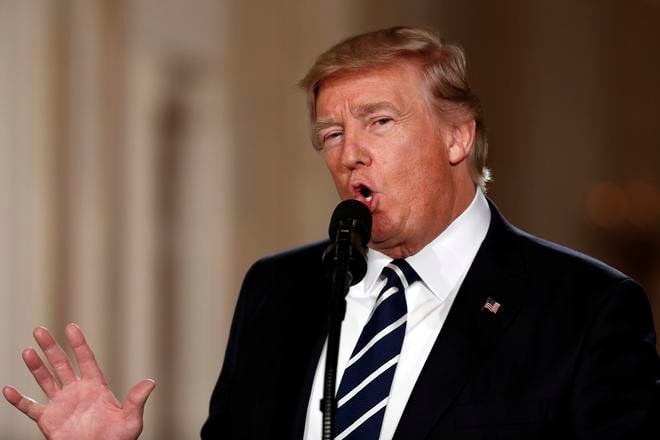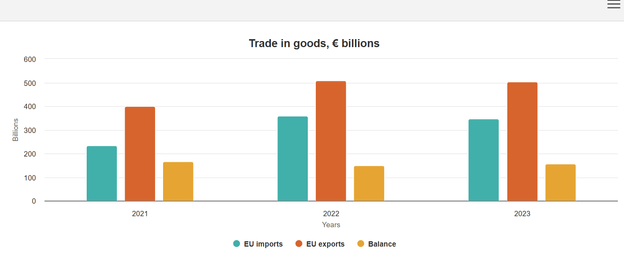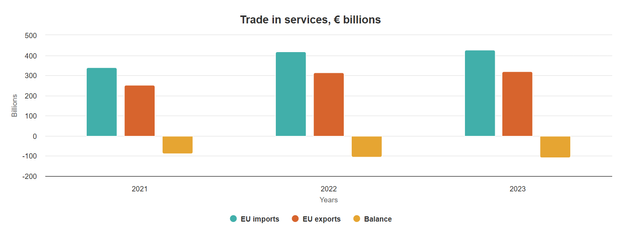Renáta Bláhová is the founding partner of BMB Partners Tax and a tax adviser.
Although the United States published an official plan for Reciprocal Trade and Tariffs as early as February 13, it only gained wider attention last week. In fact, at the first US cabinet meeting, President Donald Trump announced via the media that he would introduce retaliatory tariffs against the EU "very soon". He literally said: "It'll be [a] 25 percent [tariff] generally speaking, and that will be on cars and all other things."
This document builds on the America First Trade Policy memorandum of January and aims to achieve balance in trade relations through tariff policy. It outlines a process for calculating so-called "reciprocal tariffs" for each US trading partner separately. Its aim is to reduce the trade deficit and “address unfair and unbalanced aspects of our trade with foreign trading partners”, with a detailed analysis of the factors listed in the document as follows:
tariffs imposed (by other countries) on United States products;
unfair, discriminatory, or extraterritorial taxes imposed on United States businesses, including a value-added tax;
harmful acts, policies, or practices, including subsidies, and burdensome regulatory requirements on United States businesses operating in other countries;
policies that cause exchange rates to deviate from their market value;
any other practice that, in the judgment of the United States, imposes any unfair limitation on market access or any structural impediment to fair competition.
Thus, the Memorandum does not mention the immediate imposition of tariffs, but orders a comprehensive analysis of "trade imbalances".
The document itself suggests that it was not written by experienced experts and cannot be taken entirely seriously. For example, imposing a retaliatory tariff for the VAT applied in the EU is economic nonsense, as VAT is trade-neutral between businesses, even when goods are imported. When goods from the USA or any other non-EU country cross the border, VAT and customs duties are indeed applied to the basic value of the goods on import, but the importer deducts this tax as soon as it is paid, so that ultimately it is not paid to the tax authorities at the time of purchase, but gradually, only on added value and after the goods have been sold at the last stage of the chain to the final customer. Said briefly, US exporters of goods including US cars do not bear VAT in EU.
This suggests that the advisers to the new US administration lacked deeper technical insight before publishing the document. The economic illiteracy of this part of the plan is striking.
Nevertheless, the USA remains a crucial trading partner for Europe, including Slovakia. Therefore, it is essential to engage in negotiations and explain everything diplomatically and rationally. After all, also many political experts view Trump's statements as part of a business strategy of a president who is more a deal-maker than diplomat.
European Commission data confirms that the EU has indeed a trade surplus with the US, but only in goods (€156 billion in 2023, chart above), with automotive exports being the most significant.
For services, however, the situation is reversed, where the EU has a deficit of €104 billion (chart below), mainly in the purchase of services from US technology giants. These facts were also pointed out by a recent delegation of the European Commission led by the Slovak Commissioner Maroš Šefčovič, but so far no significant success has been seen.
Experienced European diplomats face a tough challenge - and soon-to-be German Chancellor Friedrich Merz will feel the pressure the most, as he will have to fight for Germany's car industry. Also the Slovak automotive, which is just as important for us, depends on him, as a large part of production is also exported from Slovakia to the United States. The Slovak Finance Ministry estimates that the introduction of tariffs could reduce Slovakia's GDP by 0.5 percent a year.
And finally, a lighthearted remark to close on: If the Slovak financial transaction tax were to come under the scrutiny of the US government, its controversial extraterritorial nature and associated costs, including administrative burdens, would likely fit the definition of the 'unfair and unbalanced aspects of US foreign trade' outlined in the US plan. If only it were true that all bad things happen for the best.


 US President Donald Trump (source: AP/TASR)
US President Donald Trump (source: AP/TASR)
 Trade in goods infographics (source: BMB Partners)
Trade in goods infographics (source: BMB Partners)
 Trade in services infographics (source: BMB Partners)
Trade in services infographics (source: BMB Partners)